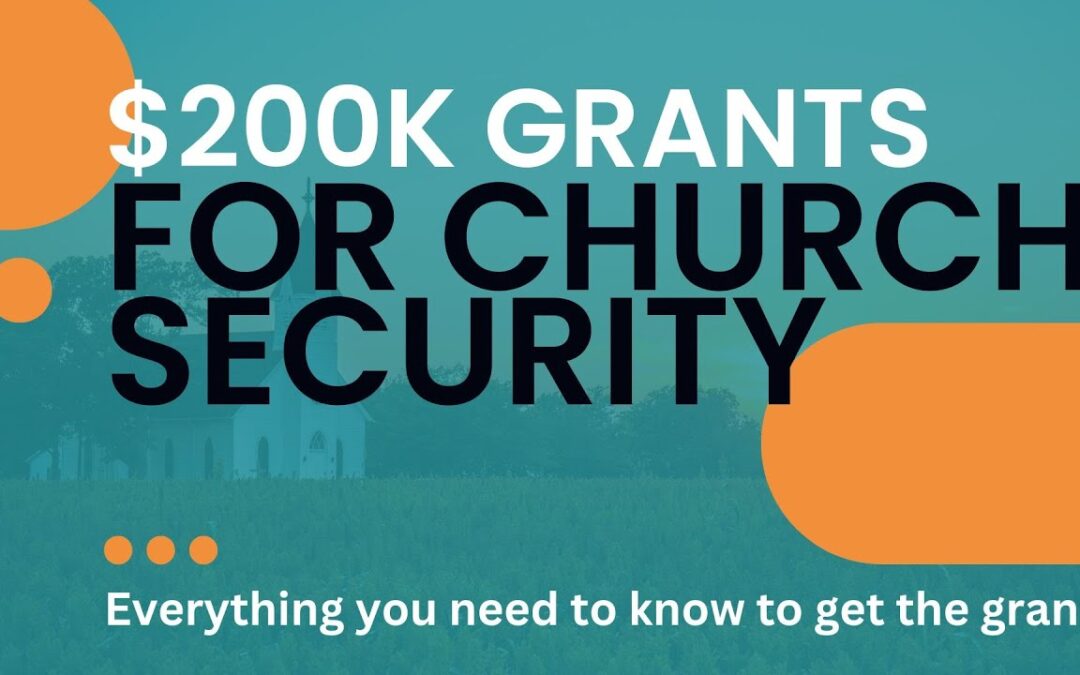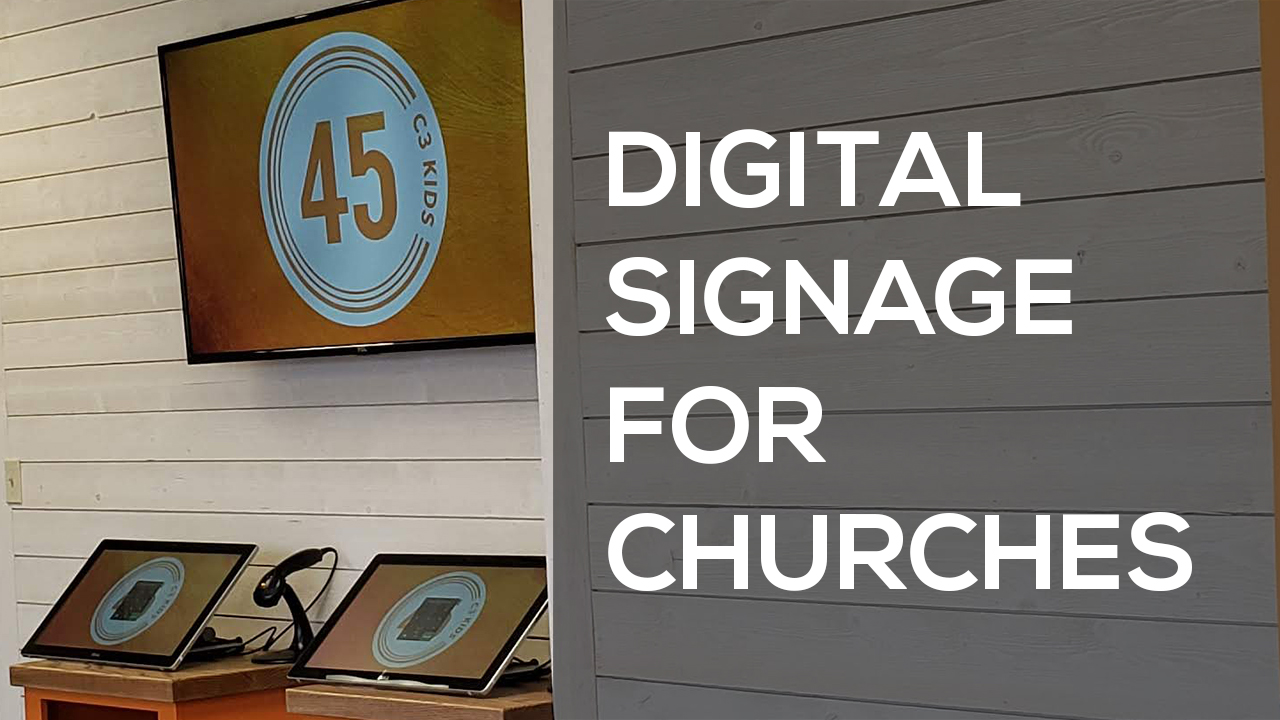The Nonprofit Security Grant Program (NSGP), managed by FEMA and the Department of Homeland Security (DHS), is a valuable federal initiative designed to assist nonprofit organizations, including churches and other faith-based groups, in addressing security risks. In recent years, churches have increasingly faced security challenges, from vandalism and theft to more serious threats. The NSGP provides funding that enables these organizations to enhance their physical and cybersecurity, ensuring they can continue their missions safely.
In this guide, we’ll explore how the NSGP works, with a specific focus on how churches can apply for and benefit from this program. By understanding the eligibility requirements, allowable uses of funds, and the application process, churches can take proactive steps to create a secure environment for their congregations.
Understanding the Nonprofit Security Grant Program
The NSGP was created to support nonprofits, including churches, that are at risk of terrorist or extremist attacks. The primary goal is to provide funding for security improvements, which could range from physical upgrades to cybersecurity and emergency preparedness training.
For 2024, the NSGP has allocated $274.5 million in funding, split into two subprograms:
- NSGP-UA (Urban Area): For nonprofits in designated high-risk urban areas, with $137.25 million in funding.
- NSGP-S (State): For nonprofits located outside high-risk urban zones, also funded at $137.25 million.
This funding structure allows churches to apply based on their location, with each subprogram addressing unique needs of urban and rural or suburban communities.
Why Churches Are Ideal Candidates for NSGP Funding
Churches, synagogues, mosques, and other places of worship often serve as community hubs, providing not only religious services but also support programs, outreach, and charity work. However, this visibility and openness can make them vulnerable to security risks. Churches, in particular, may be targeted due to their mission, values, or high-profile events, putting congregants and staff at risk.
Common risks that churches face include:
- Vandalism and Theft: Churches are often open to the public, making them susceptible to vandalism or property damage, especially during off-hours.
- Cybersecurity Threats: Churches maintain databases of congregant information and financial records, which are attractive targets for cybercriminals.
- Potential Violence: The rise in targeted violence against places of worship underscores the need for security enhancements to protect congregants during services and events.
The NSGP can help churches make necessary improvements to address these risks, securing their facilities and providing a safe space for worship.
Eligibility Requirements: Who Can Apply?
To be eligible for NSGP funding, churches must meet several requirements. Here’s an overview of the key criteria:
- 501(c)(3) Status: Churches must be classified as tax-exempt under section 501(c)(3) of the Internal Revenue Code. Many religious institutions do not need formal IRS recognition to qualify, as they are automatically tax-exempt.
- High-Risk Designation: Applicants must demonstrate they are at a high risk of terrorist or extremist threats. This is typically shown through a vulnerability assessment, which identifies specific security risks unique to the church or facility.
- Location-Based Funding: Churches in high-risk urban areas apply under NSGP-UA, while those in rural or suburban areas apply under NSGP-S. Churches with multiple locations across these areas may submit applications for each site under the appropriate funding stream.
- Focus on Security Enhancements: NSGP funds must be used for projects that directly improve physical or cybersecurity to protect against potential attacks.
Allowable Uses of NSGP Funds: How It Can Help Churches
NSGP funds cover a broad range of security-related expenses that are highly relevant to churches. Here’s a breakdown of how churches can use these funds to address specific security needs:
1. Physical Security Enhancements
For many churches, physical security is a primary concern. The NSGP allows funds to be used for various security enhancements:
- Surveillance Systems: Installing CCTV systems enables churches to monitor key areas, such as entrances, parking lots, and large gathering spaces. Surveillance provides a visible deterrent and a record of activity in case of an incident.
- Access Control Systems: Limiting access to certain areas can prevent unauthorized individuals from entering sensitive spaces, such as offices or areas where financial records are kept. Access control measures, like keycard or biometric systems, can enhance security significantly.
- Fencing and Barriers: Churches can add perimeter fencing, bollards, and other barriers to control pedestrian or vehicle access, providing an additional layer of security around the property.
- Alarms and Intrusion Detection: Intrusion detection systems alert staff or security personnel to unauthorized access, offering real-time response capabilities. Integrating these systems with local law enforcement can improve emergency response times.
- Reinforced Windows and Doors: Shatter-resistant glass, reinforced doors, and other protective installations help safeguard vulnerable entry points. This can prevent damage or slow entry in the event of an attempted break-in or attack.
These physical security measures help churches address vulnerabilities and establish a safer environment for their congregants.
2. Cybersecurity Improvements
With the increasing reliance on digital tools for member engagement, donations, and operations, cybersecurity is crucial for churches. The NSGP allows funds to be used for several cybersecurity upgrades:
- Firewalls and Antivirus Software: Protecting church networks from malware and unauthorized access helps safeguard member information and financial data.
- Data Encryption and Backup Solutions: Encrypting sensitive data and implementing secure backup solutions prevent unauthorized access and ensure data can be restored in case of a ransomware attack or other cyber incident.
- Cybersecurity Training: Educating church staff on best practices, such as recognizing phishing attempts and securing passwords, is an effective way to mitigate human error, one of the most common causes of security breaches.
- Cybersecurity Assessments: Regular cybersecurity assessments help identify vulnerabilities in the church’s IT infrastructure, guiding future security investments.
By investing in cybersecurity, churches can protect the sensitive information they handle and create a more secure digital environment for their members.
3. Emergency Preparedness and Training
NSGP funds can be used to develop emergency preparedness plans and conduct training sessions, empowering church staff to respond effectively in a crisis. Examples of allowable training and preparedness costs include:
- Active Shooter Drills: Training church staff on how to respond to an active shooter situation ensures they can protect themselves and others during high-risk events.
- Evacuation and Shelter-in-Place Plans: Developing and practicing emergency plans helps staff understand the safest ways to move congregants to secure areas or guide them to safe exits.
- First Aid and CPR Training: First aid skills can be life-saving during emergencies, especially in larger congregations. NSGP funds can cover the cost of training church staff or volunteers.
- Crisis Communication Systems: Installing or upgrading PA systems, intercoms, or mobile alert systems helps church leaders communicate quickly with staff and congregants during emergencies.
Emergency preparedness training not only enhances security but also builds confidence among congregants and staff, fostering a sense of safety and readiness.
4. Management and Administration (M&A)
A portion of NSGP funds—up to 5% of the total award—can be allocated toward management and administrative costs. These costs support the effective administration of the grant and ensure compliance with federal requirements.
Examples of M&A Costs Include:
- Financial Management: Keeping accurate records of grant spending and meeting reporting requirements is crucial for accountability.
- Grant Reporting: Churches must report on how NSGP funds are used, including detailed reports on expenses and project completion.
- Project Oversight: Funding can be allocated to hire or consult with professionals who ensure security projects are completed effectively and within budget.
These administrative funds help churches manage the complexities of a federal grant, allowing them to focus on implementing the actual security improvements.
Application Process: How Churches Can Apply for NSGP Funding
Applying for NSGP funding requires preparation and coordination, especially since each state has its own State Administrative Agency (SAA) that processes applications. Here’s a step-by-step outline of the application process for churches:
Step 1: Conduct a Vulnerability Assessment
A vulnerability assessment is a critical document that identifies the specific security risks the church faces. This assessment justifies the need for security upgrades and guides the selection of projects in the grant application. For example, an assessment may highlight weak entry points, lack of surveillance, or cybersecurity gaps.
Step 2: Prepare the Investment Justification (IJ)
The Investment Justification (IJ) is the central component of the NSGP application. This document outlines the specific projects for which the church seeks funding and includes:
- A description of each project, such as the installation of CCTV or cybersecurity software.
- A budget estimate for each project.
- An explanation of how each project addresses a vulnerability identified in the assessment.
- An assessment of the project’s feasibility and expected impact on security.
Each project in the IJ must directly address a security need, showing how NSGP funds will be used to improve the church’s safety.
Step 3: Submit the Application through the State Administrative Agency (SAA)
Churches do not submit NSGP applications directly to FEMA; instead, they must apply through their state’s SAA. The SAA reviews, prioritizes, and submits applications to FEMA on behalf of all nonprofits in the state. Churches should reach out to their SAA early to understand state-specific requirements and deadlines, as these may differ from FEMA’s final submission date.
Step 4: Finalize Application Materials
In addition to the vulnerability assessment and IJ, the church may need to submit additional documents as required by the SAA, such as a mission statement or supplementary forms. Churches should carefully review the application checklist to ensure all materials are complete before submission.
Important Deadlines for FY 2024 NSGP
For 2024, churches should keep these dates in mind:
- Application Start Date: April 16, 2024
- Final FEMA Submission Deadline: June 24, 2024, at 5:00 PM ET
- Award Notification Date: No later than September 30, 2024
Because SAAs may have earlier deadlines for nonprofit applications, churches are advised to reach out to their SAA well before FEMA’s deadline.
Tips for a Successful NSGP Application
- Start Early: Preparing a thorough vulnerability assessment and investment justification can be time-consuming. Early preparation ensures churches meet all state and federal requirements.
- Clearly Link Projects to Risks: Applications are evaluated based on the extent to which proposed projects address documented security vulnerabilities. Make sure each project has a clear link to identified risks.
- Engage Local Law Enforcement: Many SAAs encourage collaboration with local police or emergency services, as this can strengthen the church’s application and overall security strategy.
- Prioritize High-Impact Projects: Since NSGP funds may be limited, it’s wise to focus on projects that will have the most significant impact on the church’s safety, such as access control, video surveillance, and emergency response training.
Conclusion: Protecting Churches Through NSGP Funding
The Nonprofit Security Grant Program offers churches a powerful resource to enhance their security and protect their congregations. By addressing both physical and digital vulnerabilities, churches can create a secure environment that supports worship, community outreach, and faith-based activities. For churches that apply strategically, NSGP funding can make a lasting impact, empowering them to continue their missions with confidence in a safer, more protected setting.





Please let me know of the dates for 2025